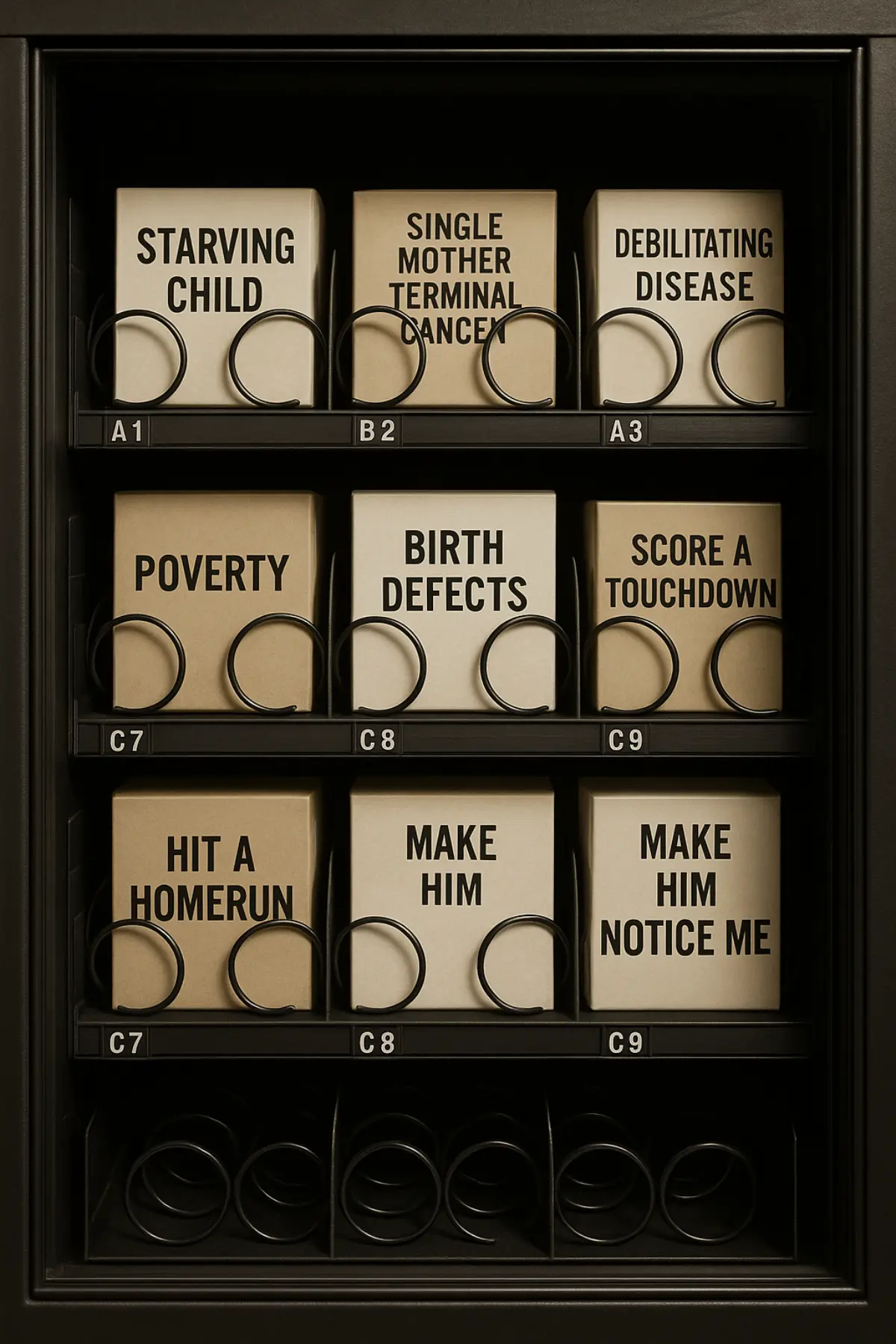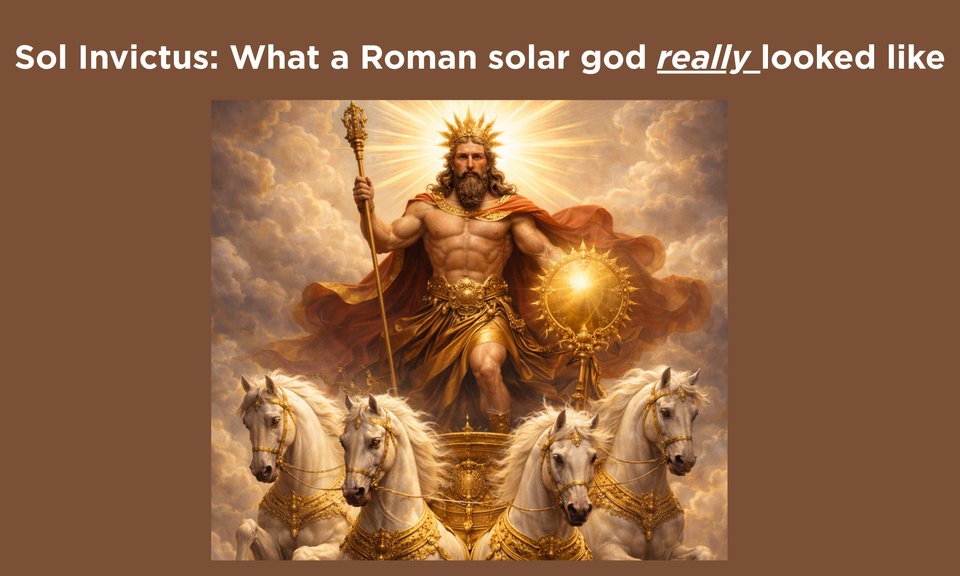The Christian Yahweh: God of the Arbitrary
A skeptical deep-dive into Christian theology that exposes the arbitrary rules, punishments, and salvation plan attributed to the Yahweh of Christianity.

Table of contents
The Christian Yahweh: God of the Arbitrary
If there’s one thing consistent about the Christian version of God, it’s that he’s not consistent at all. He’s not fair. He’s not reasonable. He’s not even particularly clear. What he is—again and again—is arbitrary. Arbitrary in his rules, arbitrary in his punishments, and deeply arbitrary in how he decides to “save” people from the very mess he created.
Let’s break it down, act by act.
Act I: The Tree, the Test, and the Trap
Creation begins not with love or wisdom, but with a setup. God creates a garden and populates it with two humans who lack any real understanding of good and evil. Then he drops a single rule on them: don’t eat from that one tree. Not because the fruit is poisonous. Not because it’s harmful. But because he said so. That’s it. The reasoning isn’t moral; it’s arbitrary.
And where is this forbidden tree placed? Right in the middle of the garden. Not tucked away. Not fenced off. It’s front and center. Like placing a red button in a nursery and telling the toddlers, Don’t touch that, or you’ll doom the world.
Of course they fail. They were built to. And God responds not with correction, but with a cosmic overreaction. One bite of fruit, and now every human being forever is born guilty.
Why? Because God arbitrarily decreed that guilt would be inherited. Not learned. Not chosen. Inherited. That’s the doctrine of original sin—an arbitrary punishment passed down for an arbitrary offense, committed by people who didn’t know any better.
Act II: Holiness and the God Who Can’t
Once sin enters the world, God—the one who designed this whole system—declares that he can no longer be near us. He is too “holy” to stand the smell. Sin repulses him, we’re told. His own creation has become spiritually toxic. So what does he do? He builds an arbitrary system of rituals and sacrifices designed to manage the stench.
But this isn’t a necessary reaction; it’s a self-imposed rule. There’s no outside force requiring God to avoid sin. He’s supposedly omnipotent. He could choose to be forgiving. He could wave it off. Instead, he chooses to separate himself from humanity because of a mess he allowed—arguably engineered—to happen.
It’s not justice. It’s preference. Arbitrary preference.
Act III: Blood, Barbecue, and Divine Taste
How do humans make peace with this God who can’t stand to be near them? By killing animals, apparently. Burnt offerings. Blood sacrifices. A whole menu of ritual slaughter. And no one really explains why this works. It just does. Because the life is in the blood.
Why blood? Why not tears, or sweat, or effort, or intention? Why is spilling blood—of all things—the one currency that buys forgiveness?
Arbitrary.
The first recorded offerings come from Cain and Abel. Abel brings meat, Cain brings vegetables. God prefers meat. No explanation. Just divine favoritism. And when Cain’s offering is rejected, it sets off a chain reaction that leads to murder. All because God preferred a lamb chop over a salad. That’s not morality; that’s divine appetite.
As the rules evolve, so do the penalties. Do the ritual wrong? You die. Use the wrong incense? You die. Show up unclean? You die. This isn’t ethics. It’s a cosmic rulebook filled with tripwires.

If you find this work valuable and want to support future research and writing, including research and web-hosting costs, you can do so on patreon.
Act IV: Eternal Hell, Finite Crimes
In mainstream Christian theology, hell isn’t temporary. It’s not a timeout. It’s forever. Eternal, conscious torment. No end. No relief.
And what earns you a spot in this horror show? It’s rarely actual evil. People don’t go to hell for genocide or war crimes. They go to hell for doubt. For being born in the wrong country. For using reason. For not believing in a messiah they never heard of.
The punishment is eternal, but the offenses are finite—and often involuntary. This isn’t justice. It’s not even close. It’s the equivalent of giving someone a life sentence with torture for jaywalking in a town they’ve never visited.
Some Christians, uncomfortable with the optics, try to downplay hell. They imagine it as separation, or emotional regret, or maybe just ceasing to exist. But those are fringe interpretations. For most of Christian history, and in many churches today, hell is literal fire. Literal pain. Forever.
And what determines who goes there? Often, arbitrary technicalities. The wrong baptismal formula. The wrong denomination. A sin you forgot to confess. An altar call you didn’t answer. No matter how sincere, no matter how kind, no matter how unaware—you break a rule you didn’t know about, and you’re toast. Eternally.
That’s not divine justice. That’s a divine trap door.
Act V: The Loophole That Makes No Sense
Now to the solution. Sin is bad. Everyone has it. We deserve punishment. But God loves us. So he invents a loophole: human sacrifice. Obviously.
But not just any human—it has to be a perfect one. Problem: none exist. So God, in his infinite wisdom, creates one by impregnating a teenager without asking. The result is Jesus, who is somehow fully God, fully man, and fully confusing.
He then allows himself to be murdered as a blood payment to himself, to satisfy a rule he made, in order to undo a curse he put in place... because someone else ate a piece of fruit. Make it make sense.
Jesus is born of a human woman—Mary. And according to Christian theology, all humans inherit sin from Adam. So how does Jesus avoid this spiritual contagion?
Catholics invented the Immaculate Conception: Mary was herself conceived without sin, by a one-time divine exception. A convenient fix. But if you are going to make one woman be born without sin so that her son can one day also be born without sin, so he can be the savior of the world, wouldn’t it make more sense just to make everyone born without sin and skip all the cruciform hassle?
Protestants reject the idea of the Immaculate Conception of Mary and claim that sin is passed through the male line, or that Jesus simply didn’t inherit it because… divine intervention. No unified explanation. Just a patchwork of theological guesses. This is so arbitrary, they rarely talk about it.
Either way, the idea that billions are condemned because of inherited sin, but one guy got a special exemption for reasons we’re not allowed to question—well, that’s not coherence. That’s favoritism. Arbitrary favoritism.
And the sacrifice? It’s supposed to be enough for everyone. One man’s death for the sins of the world. But only if you believe the right things about it, in the right way, at the right time. Otherwise, it doesn’t count.
Again: arbitrary.
Epilogue: God as the Ultimate Bureaucrat
This god creates a problem, builds a maze of obscure and shifting rules around it, enforces punishments that don’t fit the crime, and then offers a single way out—designed so that most people will fail to find it.
This isn’t divine mystery. It’s bad system design. Arbitrary from start to finish. Arbitrary in the origin of sin. Arbitrary in the standards of holiness. Arbitrary in the demands for sacrifice. Arbitrary in the mechanics of salvation. Arbitrary in the scale and permanence of punishment.
And people worship this.
FAQ
Is “hell” always eternal conscious torment?
Historically, that view has dominated many Christian traditions, though some groups argue for softer versions. The common theme remains disproportionate punishment for finite acts.
Why call this arbitrary?
Because the rules, punishments, and supposed solutions don’t cohere; they depend on divine preference rather than consistent moral logic.
Works Cited
Opinion essay drawing on standard Christian doctrines and their common interpretations; no external sources quoted directly.



